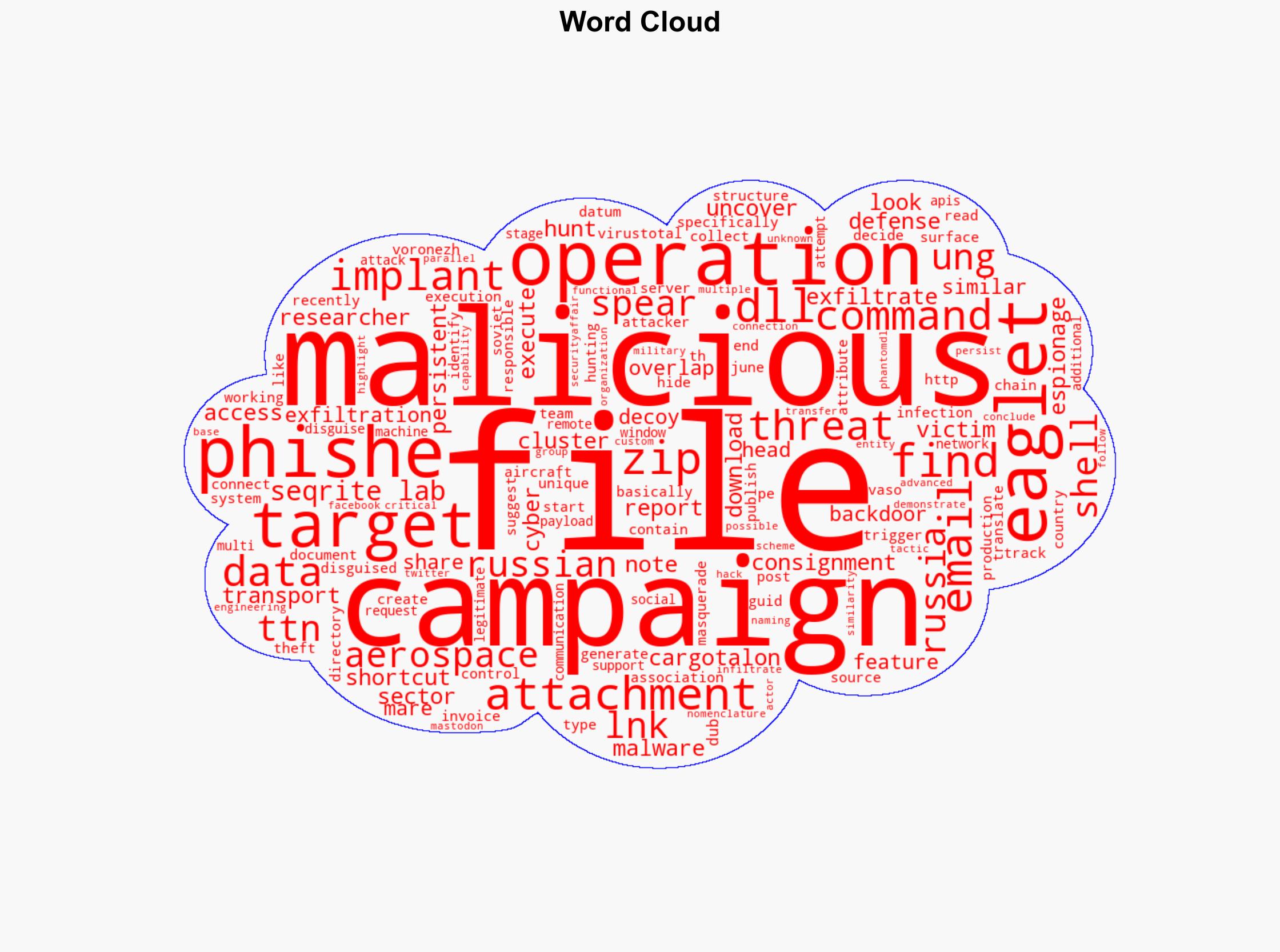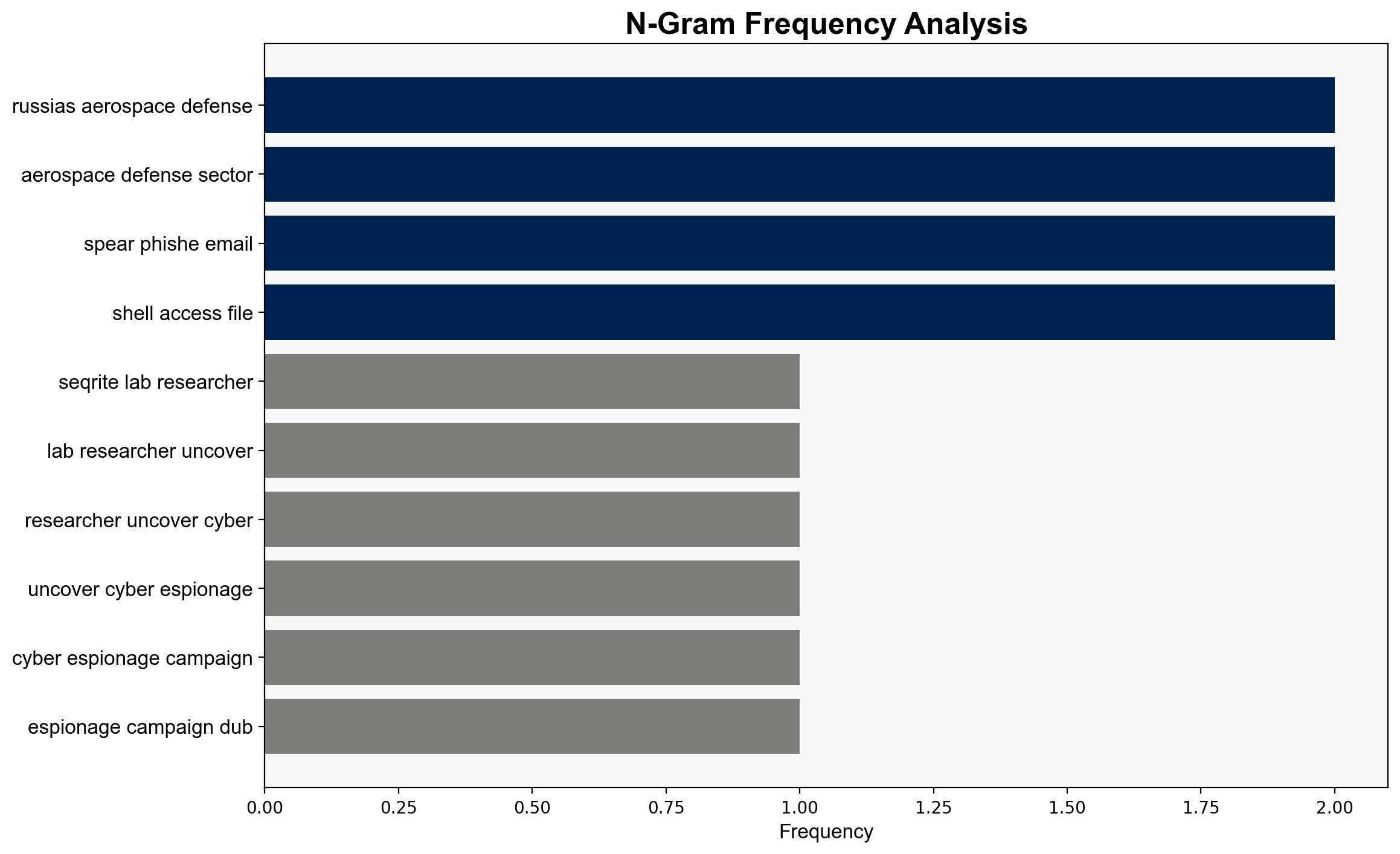Operation CargoTalon targets Russias aerospace with EAGLET malware – Securityaffairs.com
Published on: 2025-07-25
Intelligence Report: Operation CargoTalon targets Russia’s aerospace with EAGLET malware – Securityaffairs.com
1. BLUF (Bottom Line Up Front)
Operation CargoTalon is a sophisticated cyber espionage campaign targeting Russia’s aerospace sector, specifically the Voronezh Aircraft Production Association (VASO), using the EAGLET malware. The most supported hypothesis is that an unknown group (UNG) is conducting this operation to exfiltrate sensitive data, potentially for state-sponsored espionage. Confidence level is moderate due to overlapping indicators with known threat clusters but lacking direct attribution. Recommended action includes enhancing cybersecurity measures within the aerospace sector and international collaboration to identify and counteract the threat actors.
2. Competing Hypotheses
Hypothesis 1: UNG is a state-sponsored group conducting cyber espionage to gather intelligence on Russia’s aerospace capabilities, leveraging EAGLET malware for persistent data exfiltration.
Hypothesis 2: UNG is an independent cybercriminal group aiming for financial gain through the sale of exfiltrated data or ransomware tactics, using EAGLET as a tool for infiltration and persistence.
Using the Analysis of Competing Hypotheses (ACH) 2.0, Hypothesis 1 is better supported due to the targeted nature of the attack, the sophistication of the malware, and the overlap with known state-sponsored threat clusters like Head Mare.
3. Key Assumptions and Red Flags
Assumptions:
– The sophistication of the malware implies state sponsorship.
– Overlapping tactics with known threat clusters suggest a connection.
Red Flags:
– Lack of direct attribution to a specific state or group.
– Potential cognitive bias in assuming state sponsorship due to the target’s strategic value.
Blind Spots:
– Insufficient information on the command and control infrastructure.
– Limited visibility into the full scope of data exfiltrated.
4. Implications and Strategic Risks
The operation poses significant risks to Russia’s aerospace sector, potentially compromising sensitive technological and defense information. This could lead to economic and strategic disadvantages. Escalation scenarios include retaliatory cyber operations by Russia or increased cyber espionage activities targeting other sectors. The psychological impact on stakeholders could lead to heightened security measures and increased tensions in cyber diplomacy.
5. Recommendations and Outlook
- Enhance cybersecurity protocols within the aerospace sector, focusing on phishing defenses and malware detection.
- Foster international collaboration for threat intelligence sharing and coordinated response efforts.
- Scenario-based projections:
- Best: Identification and neutralization of the threat actors, leading to improved cybersecurity resilience.
- Worst: Successful exfiltration and exploitation of sensitive data, resulting in strategic setbacks.
- Most Likely: Continued cyber espionage attempts with incremental improvements in defense mechanisms.
6. Key Individuals and Entities
– Voronezh Aircraft Production Association (VASO)
– UNG (Unknown Group)
– Seqrite Labs (Research entity uncovering the campaign)
7. Thematic Tags
national security threats, cybersecurity, counter-terrorism, regional focus





